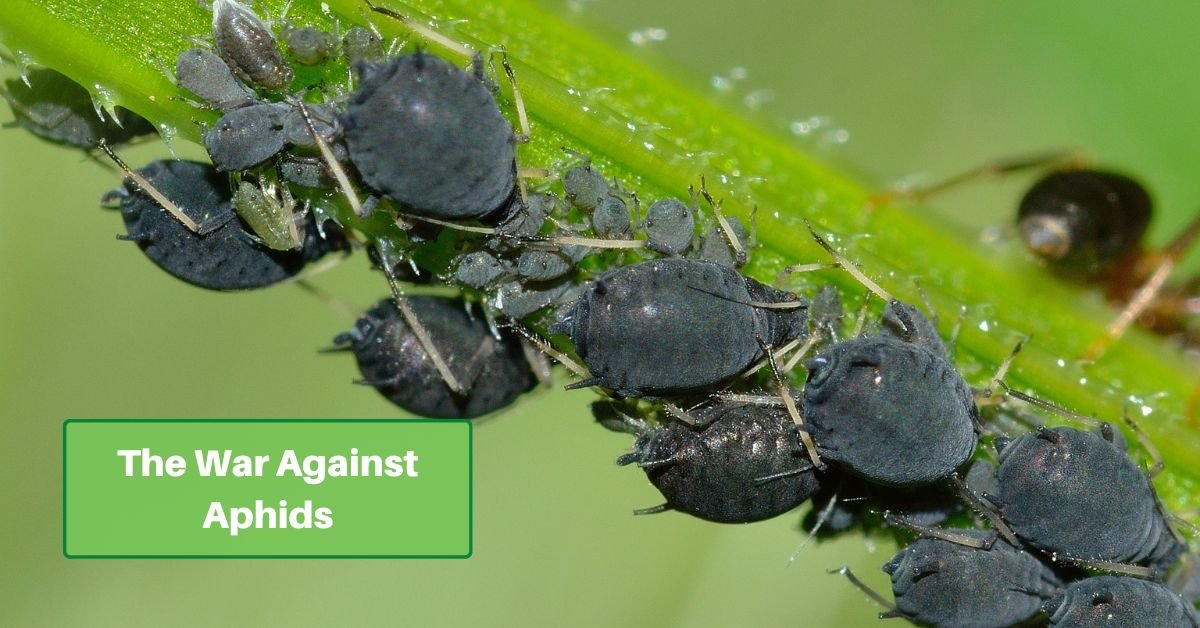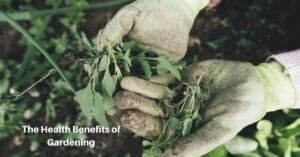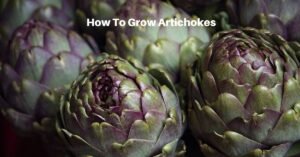Aphids are among the most common garden pests. Even though they’re tiny, they can cause significant damage to your plants if left unchecked. These tiny insects are notorious for their rapid reproduction and ability to sap the life out of your garden favorites.
In this guide, we’ll delve into understanding aphids and the plants they target. We’ll look at how to identify their presence, and the various methods—both organic and chemical—to control and prevent aphid infestations.
Meet the Aphids
Aphids, scientifically known as Aphidoidea, are small, soft-bodied insects with pear-shaped bodies that come in various colors, including green, yellow, and brown. They typically measure between 1/16 to 1/8 inch in length.
Aphids are notorious for their rapid reproduction rate. Many are born already pregnant! This prolific breeding can quickly lead to aphid colonies taking over your garden.
Plants That Attract Aphids
Aphids have a wide range of host plants, and they are drawn to several factors, including the color and scent of the plants.
Aphids tend to target plants with tender, new growth, and they’re particularly attracted to young shoots and buds.
Some of their favorite plant targets include:
- Roses
- Tomatoes
- Peppers
- Cabbage and other brassicas
- Beans
- Fruit trees
- Sunflowers
Signs of Aphid Presence
Detecting aphids early is essential to prevent widespread damage. Here are some signs that indicate an aphid infestation in your garden:
- Sticky Residue: Aphids secrete a sugary substance called honeydew, which can accumulate on leaves and nearby surfaces. If you notice a sticky residue on your plants, this could be a sign of aphids.
- Curling or Distorted Leaves: Aphids feed on plant sap. This can cause leaves to curl, wilt, or become distorted.
- Yellowing Leaves: As aphids sap nutrients from plants, leaves may turn yellow and eventually drop.
- Black Sooty Mold: The honeydew excreted by aphids can attract black sooty mold, which can cover leaves and stems, giving them a black, sooty appearance.
Natural Predators and Beneficial Plants
Aphids have several natural predators that can help control their populations in your garden. Encouraging these beneficial insects can be an effective way to combat aphids:
Ladybugs (Lady Beetles): These voracious predators are known to consume large numbers of aphids.
Lacewings: Lacewing larvae feed on aphids and can be a valuable ally in your garden.
Parasitic Wasps: Certain parasitic wasps lay their eggs inside aphids, eventually killing them.
To attract these beneficial insects to your garden, consider planting nectar-rich flowers such as marigolds, daisies, and yarrows. These flowers not only provide food for pollinators but also offer shelter for beneficial insects.
Organic Methods to Control Aphids
Handpicking: For small infestations, physically remove aphids from your plants by gently squishing them or spraying them off with a strong stream of water.
Pruning: Trim off heavily infested plant parts and dispose of them to reduce aphid populations.
Insecticidal Soap: Use a mixture of insecticidal soap and water to spray aphids. This suffocates and kills them. Be sure to follow the product label instructions.
Neem Oil: Neem oil is a natural insecticide that can help control aphids. Mix it with water and spray it on affected plants. Neem oil not only kills aphids but also disrupts their life cycle.
Chemical Control Options
If aphid infestations are severe and organic methods haven’t proven effective, you may consider chemical control options. Be cautious when using chemical pesticides and always follow the instructions on the label. Some common chemical options for aphid control include:
Insecticidal Sprays: Several commercial insecticides are available for aphid control. Ensure the product is labeled for the specific plant you intend to treat.
Systemic Insecticides: These insecticides are absorbed by the plant and can kill aphids when they feed on treated plant parts. Exercise caution when using systemic insecticides, as they may also affect non-target insects.
Preventing Aphid Infestations
Preventing aphid infestations is often more effective than dealing with them after they’ve taken hold. Here are some strategies to minimize the risk of aphids in your garden:
Companion Planting: Plant aphid-repellent herbs and flowers near susceptible plants. For example, planting marigolds, chives, or nasturtiums alongside your vegetables can deter aphids.
Regular Inspection: Routinely inspect your plants for signs of aphid infestations. Early detection can help prevent the problem from spreading.
Crop Rotation: Rotate your crops each season to reduce the likelihood of aphids overwintering in the soil.
Aphid-Resistant Varieties: When possible, choose plant varieties that are known to be resistant to aphids.
Dealing with aphids in your garden requires vigilance and a combination of strategies, both organic and chemical. By understanding aphid behavior, recognizing signs of their presence, and taking preventive measures, you can protect your garden from these pesky pests.
Whether you choose to rely on natural predators, organic remedies, or chemical solutions, the key is to maintain a healthy garden and enjoy the fruits of your labor without the interference of these tiny but troublesome insects.









